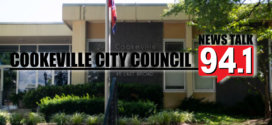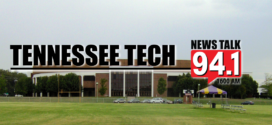The city of McMinnville will rehab two wetland areas as part of two separate grants totaling just over $1 million.
The community will use $503,500 in ARP funds on Potter Lane where the city will rehabilitate a wetland area and turn it into a park. Another $503,500 grant will be used in an wetland area off of Calvin Street behind Bobby Ray Memorial Elementary. Storm-water Manager Lyndon Bussell said these two green infrastructure projects will help control water runoff from storms in those area.
“Areas that have been deemed unbuildable wetland areas, and they will be elevated into parks,” Bussell said. “To places that are an asset to McMinnville. Places that help with storm-water management. Things that are for the future. This will be something that will help with storm-water management years and years from now.”
Bussell said the park on Potter Lane will feature a wetland rain garden, detention pond and a boardwalk path. He said the wetland off of Calvin Street will be used to help educate the students at the elementary school.
“This one is a straight rehab of a very large wetland, which we plan to retain water in it, but also provide a lot of educational opportunities to the school system near by, so they can learn about the different plants, and how they provide storm-water management to the surrounding area,” Bussell said.
Bussell said he has reached out to the community to help with the projects.
“We’ve actually reached out to a lot of the local organizations here such as the Master Gardeners, 4-H and a lot of local place that would be more than happy to help do an event of mass planting of these trees and these shrubs,” Bussell said. “So we got a lot of great support locally.”
Bussell said the wetlands have not been properly cared for. He said he looks forward to returning them to a natural and well-maintained state.
“Over the years, it’s just been mowed down,” Bussell said. “Vegetation has not been allowed to grow out there. By planting larger plants out there the functionality of the wetlands will rise. The functionality will lead to more detention of water. So, by planting more native species that love water, that wetland will rise in functionality and be something that’s less of a nuisance area and more as an asset to the city.”
McMinnville applied for these grants through TDEC back in August.
 News Talk 94.1/AM 1600 Where The Upper Cumberland Talks
News Talk 94.1/AM 1600 Where The Upper Cumberland Talks







